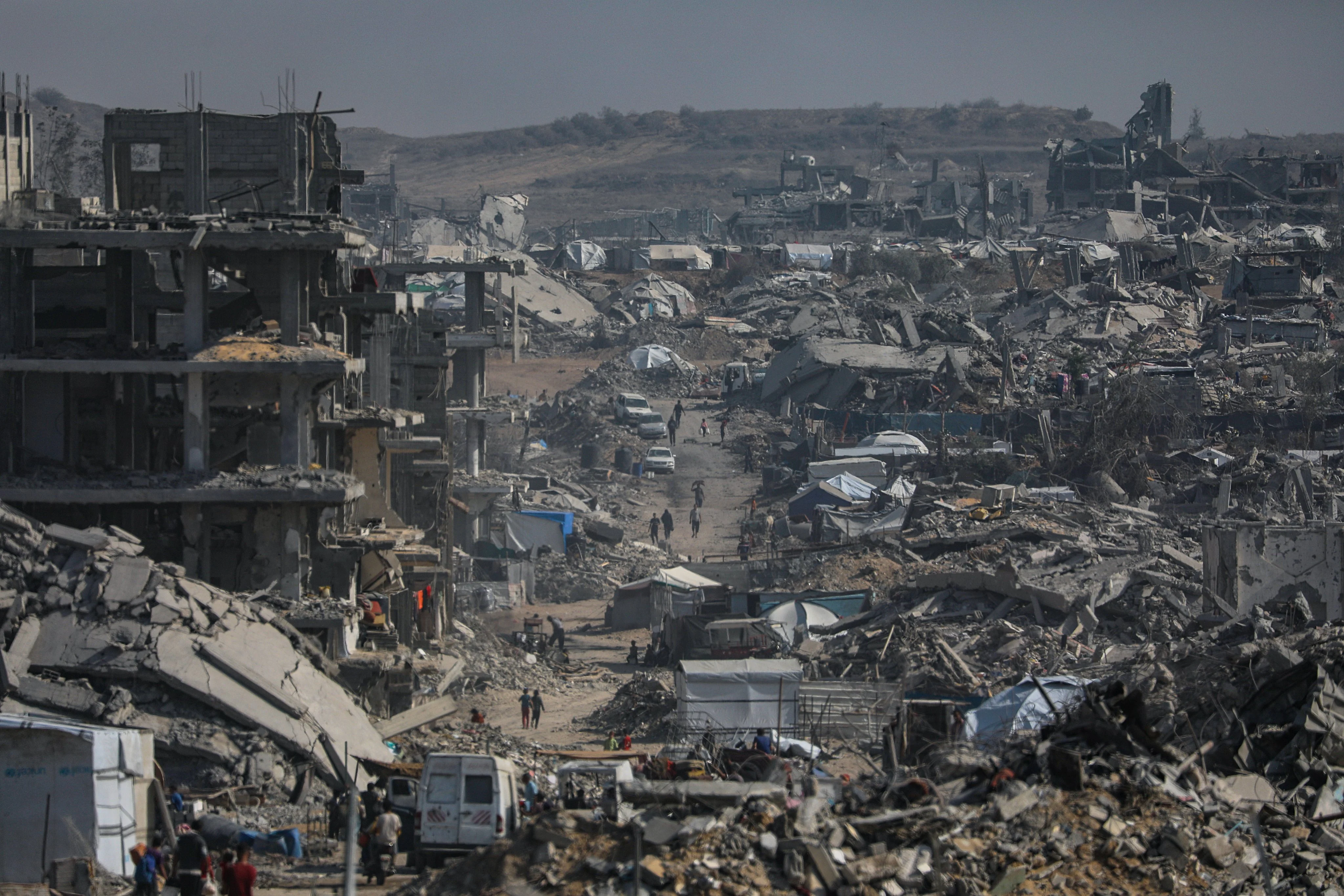Copyright scmp

Indonesia has been urged to exercise caution before sending troops to join an international stabilisation force (ISF) in war-torn Gaza, part of a US-led ceasefire plan, as questions swirl around the force’s mandate, financing, duration and leadership. President Prabowo Subianto has repeatedly said publicly that the world’s largest Muslim-majority nation is willing to deploy up to 20,000 Indonesian soldiers to Gaza to provide security amid a ceasefire and when reconstruction starts. Speaking in front of United States President Donald Trump at the US-Asean summit on Sunday, Prabowo reiterated his commitment to send troops to Gaza, as it would bring Indonesia to “the right side of history” and help build “lasting peace” in the region. “Indonesia appreciates the outcome of the Sharm el-Sheikh Peace Summit and your leadership in advancing a credible road map to lasting peace. Our task now is to implement it, turning words into concrete actions,” Prabowo said. Alongside Indonesia, the United Arab Emirates, Egypt, Qatar and Azerbaijan reportedly are also willing to contribute to the force, whose members can reach up to 5,000. Freddy Ardianzah, a spokesman with Indonesia’s armed forces TNI, on Monday said Indonesian soldiers were “always ready” to be deployed overseas, though the military still waited for “mandate and the state political decision”. “In principle, the TNI is ready to adapt to needs in the field and to official requests from the United Nations, taking into account security aspects, capabilities, and operational mandates,” Freddy said in a statement. TNI had units specifically prepared and trained for operations abroad, who routinely “undergo training in interoperability, logistics preparedness, and operational capabilities in various fields”, he added. Unclear mechanism Experts, however, say Indonesia is better off waiting for a clear UN-approved mandate before sending boots to Gaza’s ground, as contributing to the ISF without one would risk the security and safety of the soldiers. “When we act as peacekeepers and send contingents under the UN flag, the contingent is not offensive, and its purpose is to safeguard the transition process from a conflict zone to a peace-building zone. The UN mandate is to ensure, under international law, that the peacekeeping forces we send are legal,” Ahmad Umar, an international politics fellow at Aberystwyth University, told This Week in Asia. Without a mandate from the UN Security Council, the ISF would find it “difficult to exert pressure” on all warring sides to follow the ceasefire blueprint set by the US, Ahmad said. The ISF could also get entangled in the conflict, especially by militias in Gaza who could assume that the foreign forces were not neutral, he added. Alman Helvas Ali, defence industry expert at Jakarta-based political and security consultancy firm Marapi Consulting and Advisory, said it was “very rare” for Indonesia to send troops overseas without a UN Security Council mandate. In 2012, for example, Indonesia sent a contingent to join the Malaysian-led International Monitoring Team to oversee the ceasefire between the Philippine government and the Moro Islamic Liberation Front. France, Britain and the US were preparing a draft resolution to the Security Council to “provide stronger international legal backing” to the force, French Foreign Ministry spokesman Pascal Confavreux told reporters on October 22. “We need to determine to what extent we can obtain a mandate that will then define the framework, the mechanisms, and the contributions required. Things need to be put in place step by step,” Confavreux said. US Secretary of State Marco Rubio, however, said a UN mandate was not the only solution for the establishment of an international force in Gaza. “The problem is that some of these countries can’t participate in this unless they have a mandate from the UN, as an example. So maybe it’ll be a UN resolution; that’s one route. We could have an international agreement as well. We’re working through that,” Rubio said in a news briefing on October 24. Financing the ISF would also be an issue, Alman pointed out. “If we have the UN mandate, the operation costs will be reimbursed by the UN. If not, who will reimburse us? If this is a regular operation, that means we will use our own money, which raises concerns about our financial strength to support the operation,” Alman said. Another aspect to be determined is which rules of engagement would be used by the force. According to Alman, the UN’s traditional blue-helmet missions are typically a “Chapter Six and a Half” operation, which sees lightly armed troops resolve disputes peacefully but may also use more force, as authorised under Chapter VII of the UN Charter, if necessary. “The stabilisation force in Gaza might use the US rules of engagement, which use coercive force, or Chapter VII. Anyone who violates the ceasefire agreement will be subject to military action. If the force uses coercive force, they could be [prone to] attacks by Hamas or Israel,” Alman said. The ISF will coordinate with the newly inaugurated US-led Civil-Military Coordination Centre, whose missions include monitoring implementation of the ceasefire agreement and helping facilitate the flow of humanitarian, logistical and security assistance from foreign donors into Gaza, according to a statement from the US Central Command on October 21.



